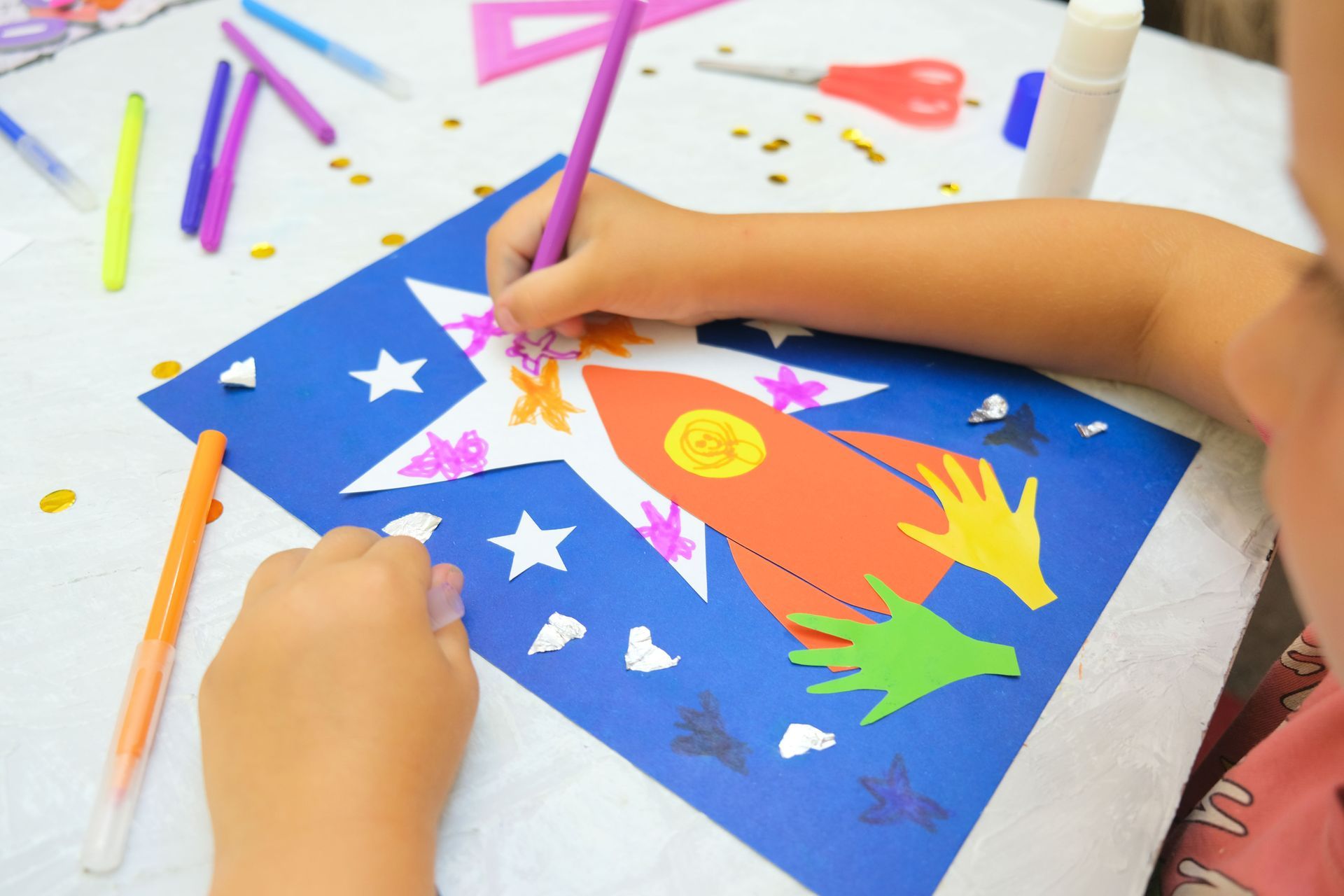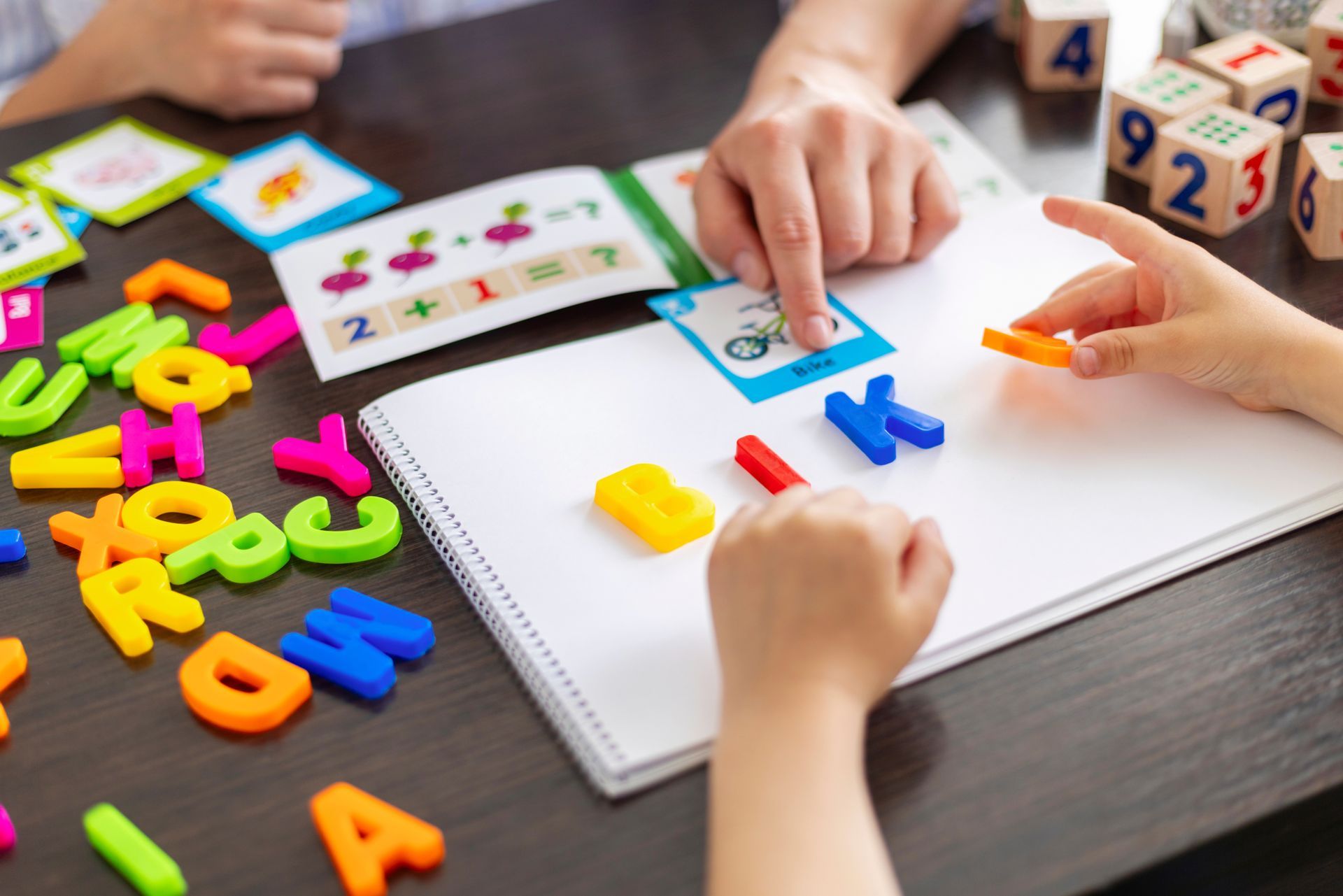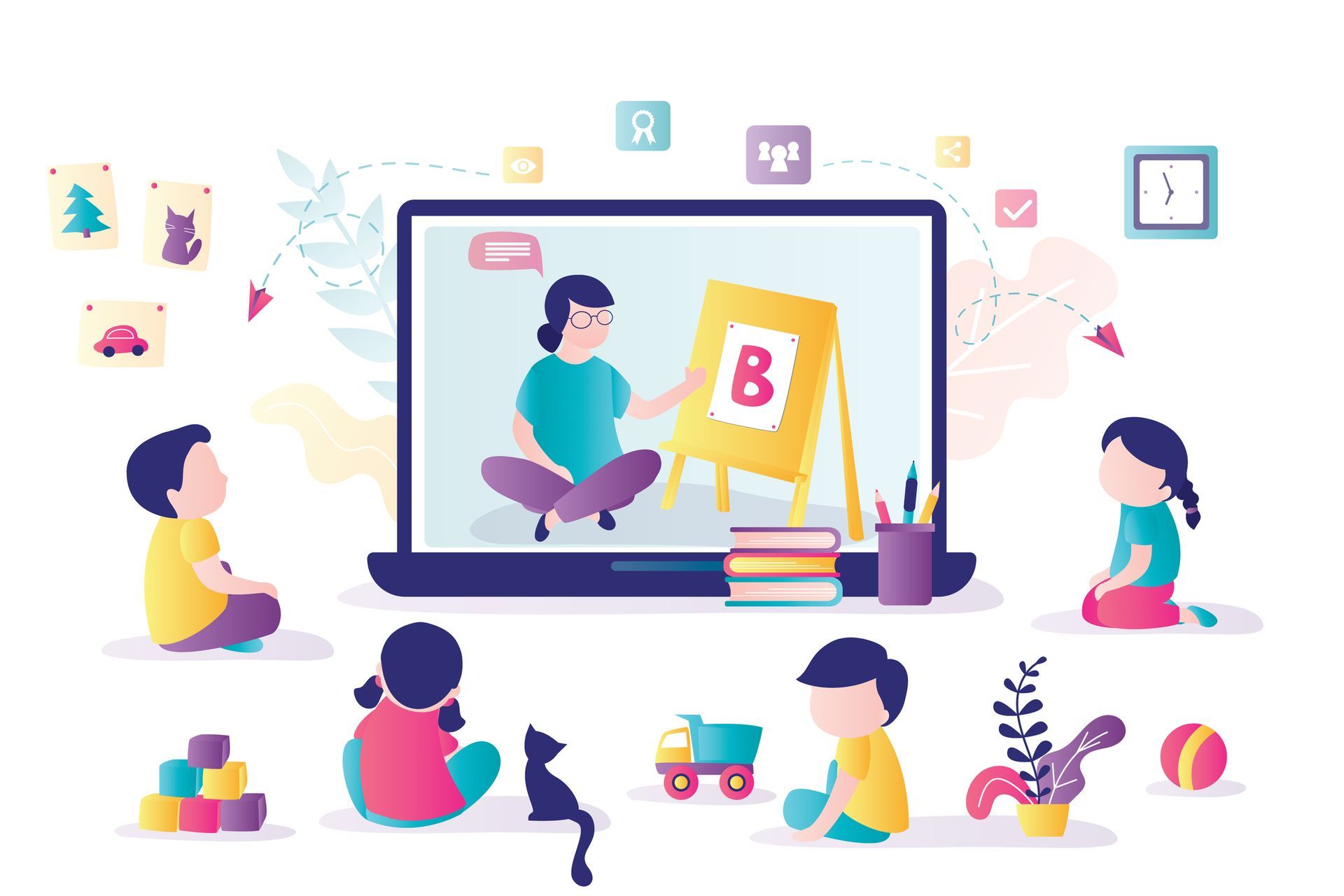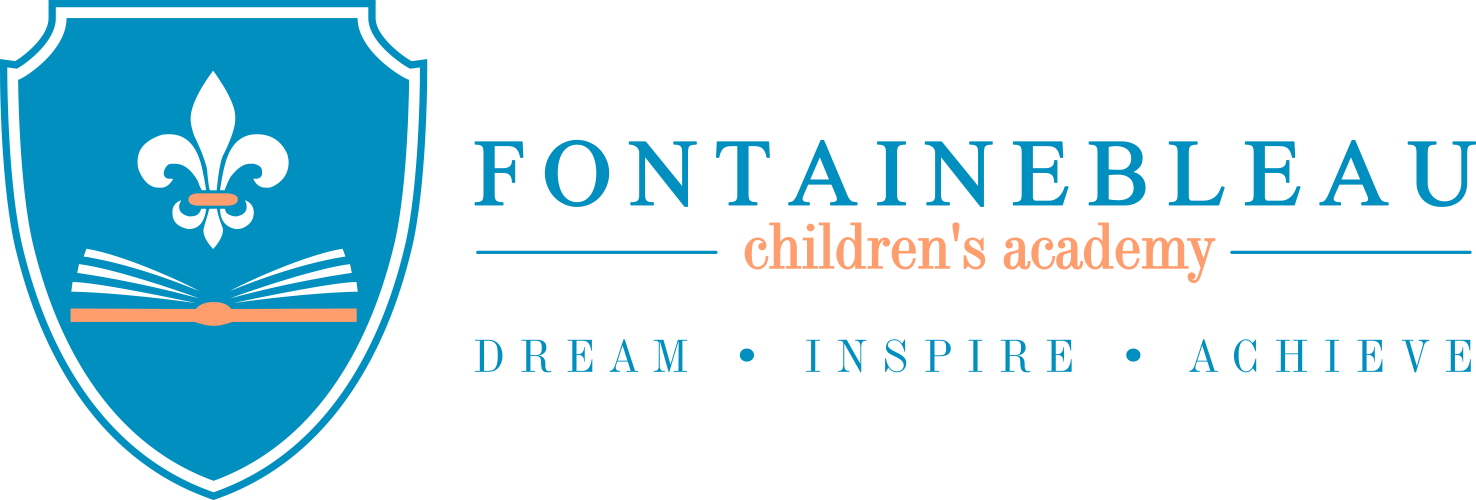News

Add Excitement to Summer with Themed Learning Weeks Kids thrive on predictability and novelty—theme-based weeks provide both. Themed summer activities immerse children in a topic across multiple learning domains and encourage creative exploration. Why Themed Learning Works: Themed units give structure while allowing open-ended learning. When children revisit a concept through books, songs, play, and hands-on activities, they form deeper connections and integrate new knowledge more fully. Learning Modalities Engaged: Interpersonal: Group projects, dramatic play Intrapersonal: Journaling, reflecting, crafting Musical: Singing themed songs Linguistic & Logical: Exploring topic-specific vocabulary, classifying information Weekly Theme Ideas: Ocean Week: Read ocean books, make jellyfish crafts, create a sea animal sensory bin Community Helpers: Role-play as a doctor, build a fire station from blocks Animal Adventures: Make masks, learn animal sounds, sort animals by habitat Space Week: Paint planets, build rockets, count stars Camping Week: Set up a tent, make s’mores, use flashlights to tell stories Brain Benefits: Reinforces cross-domain learning (language, math, science, art) Supports schema building and memory retention Encourages higher-order thinking through thematic exploration Social-Emotional Benefits: Boosts self-expression and creativity Encourages collaboration and empathy Supports self-regulation through structured routines Final Thoughts: Themed summer activities are an easy, effective way to keep kids engaged and learning. Whether you choose one theme or rotate each week, your child will benefit from the structure, creativity, and discovery built into every moment.

Hands-On Fun: Summer Math & Science Activities That Spark Curiosity Young children are natural scientists and mathematicians—always asking questions, experimenting, and sorting the world around them. STEM summer activities build on these instincts to promote early analytical thinking, logical reasoning, and creative problem-solving. Why Enrichment Matters: Early exposure to STEM supports future academic success in all subjects. Even basic math and science experiments improve foundational understanding and cognitive development. Learning Modalities Engaged: Kinesthetic: Measuring, pouring, stacking Logical-mathematical: Sorting, patterning, predicting Visual-spatial: Building structures, drawing diagrams Easy STEM Activities: Use measuring cups during cooking and compare volumes Sort toys by shape, size, or color Test what floats/sinks and chart the results Create ramps and explore gravity with toy cars Brain Benefits: Strengthens prefrontal cortex functions (decision-making, reasoning) Develops numeracy and spatial awareness Enhances cause-and-effect thinking Social-Emotional Benefits: Builds confidence through experimentation and risk-taking Encourages persistence and growth mindset Fosters communication and teamwork during collaborative play Final Thoughts: Math and science are all around us—from the kitchen to the playground. With simple tools and a bit of imagination, every child can be an explorer this summer.

Discover, Learn, and Grow: Nature-Based Learning for Kids The outdoors is a rich sensory environment that naturally supports early childhood development. Nature-based learning not only engages the senses, it also encourages critical thinking, observation, and emotional regulation. Why Outdoor Learning Matters: When children engage in outdoor activities, they access real-world learning. Nature stimulates the brain with ever-changing patterns, sounds, and textures-great for children's sensory integration, gross motor skills, and stress regulation. Learning Modalities Engaged: Kinesthetic: Walking, climbing, digging Tactile: Handling leaves, rocks, water, soil Naturalistic: Recognizing patterns in weather, plants, and animals Ideas to Try: Collect natural materials and sort them by size, texture, or color Go on themed nature walks ("find something soft," "find something red") Use water play to explore volume and temperature Make a backyard obstacle course for physical coordination Brain Benefits: Enhances sensory processing and integration Supports cognitive flexibility and adaptive thinking Stimulates curiosity and observational skills Social-Emotional Benefits: Reduces stress and anxiety through exposure to nature Encourages cooperative play and turn-taking in open space Promotes resilience and problem-solving in unfamiliar environments Final Thoughts: Outdoor exploration fosters whole-child development in a way that's hands-on, active, and joyful. Whether it's a park, your yard, or a nature trail, there's a lesson waiting to be discovered in every leaf and puddle.

Make Reading Fun This Summer: Literacy Activities That Last Language is the foundation of early learning-and reading is one of the most effective ways to build it. But literacy is more than just books: it's conversation, storytelling, rhyming, and play. With simple, engaging literacy activities, families can strengthen reading skills while fostering a lifelong love for language. Why Summer Reading Matters: Children exposed to reading at an early age often show stronger language development, better listening skills, and higher emotional literacy. Participating in a summer reading program or even creating your own reading list for kids keeps those benefits active all year. Learning Modalities Engaged: Auditory: Listening to stories and sounds Visual: Recognizing letters, pictures, and patterns Linguistic: Speaking, reading aloud, rhyming Try This at Home: Set up a "book basket" in every room Play rhyming games or sing alphabet songs in the car Act out characters with puppets or costumes Keep a reading log and celebrate milestones Brain Benefits: Activates the left temporal lobe (language and phonological processing) Strengthens comprehension and inference skills Encourages symbol recognition and decoding Social-Emotional Benefits: Enhances emotional understanding through character experiences Improves self-regulation and focus Fosters empathy and perspective-taking Final Thoughts: Every time you read with your child, you're investing in their future learning. Whether it's a picture book before bed or a word game in the car, literacy is a gift that continues to grow.

Keep the Brain Growing: Simple Summer Learning Activities for Kids Summer doesn't mean learning has to stop-it just shifts shape. Through fun, meaningful, and intentional summer learning activities, children can continue to build cognitive, motor, and emotional skills in ways that feel natural and engaging. At Fontainebleau Children's Academy, we encourage families to see summer as a chance to create joyful moments that also support long-term development. Why Summer Learning Matters: The "summer slide" is a well-documented decline in academic skills during long breaks. Children, especially in early childhood, thrive with routine and repeated exposure to concepts. When learning continues through hands-on, play-based activities, it helps reinforce neural pathways related to memory, problem-solving, and language processing. Learning Modalities Engaged: Kinesthetic: Building, crafting, and moving Auditory: Listening to music, reading aloud Visual: Coloring, picture books, matching games Activity Ideas to Try at Home: Create a "learning corner" with puzzles, books, sensory bins, and art materials. Schedule short, consistent routines-like morning storytime or afternoon math play. Encourage self-help skills like sorting laundry, helping cook, or organizing toys. Brain Benefits: Strengthens executive function (attention, task persistence, impulse control) Enhances working memory through recall-based games Supports language acquisition via storytelling and new vocabulary Social-Emotional Benefits: Builds confidence through skill mastery Encourages independence and responsibility Fosters connection through shared family learning experiences Final Thoughts: Everyday routines are full of teachable moments. By intentionally integrating educational summer activities, families can support their child's whole development-without sacrificing fun or freedom.

3. Balancing Technology Use in Early Childhood Technology is a part of everyday life, and when used thoughtfully, it can be a powerful tool for early learning. At Fontainebleau Children’s Academy, we embrace technology in a way that enhances—not replaces—hands-on experiences, social interactions, and creative play. How We Use Technology to Support Learning Interactive Learning Tools – We carefully select educational apps and digital resources that reinforce literacy, math, and cognitive development while keeping children actively engaged. Virtual Field Trips & Exploration – Technology allows children to "travel" to museums, nature reserves, and even outer space, expanding their curiosity and understanding of the world. Parent-School Communication – Digital platforms help parents stay connected with their child’s learning journey, providing updates, photos, and progress reports. The Importance of Balance While technology has its place in education, real-world play, movement, and social interaction remain our top priorities. Experts recommend: Limiting Passive Screen Time – At FCA, we ensure that technology is used intentionally, not as a substitute for teacher-led activities. Encouraging Hands-On Exploration – Children learn best through tactile, interactive experiences, so screen time is always balanced with physical play, art, and hands-on STEM activities. Using Technology to Support—Not Replace—Human Interaction – We believe that teachers, peers, and real-world experiences are the foundation of a child’s growth, and technology should serve as a tool, not a crutch. At Fontainebleau Children’s Academy , we focus on creating a balanced, enriched learning environment where technology complements—rather than dominates—early childhood education. Our goal is to equip children with the skills they need for the future while keeping their learning experiences engaging, interactive, and developmentally appropriate.

2. Innovative Approaches to Early Childhood Education Early childhood education is constantly evolving, with new research and teaching methods shaping the way young children learn. At Fontainebleau Children’s Academy, we embrace Frog Street’s curriculum, a research-based, intentional approach to early childhood development that fosters creativity, independence, and a lifelong love of learning. How Frog Street’s Curriculum Enhances Learning Play-Based Learning – Frog Street integrates purposeful play with structured learning experiences. Activities like dramatic play, music, and movement develop problem- solving, collaboration, and critical thinking skills. Social-Emotional Development – Our program places a strong emphasis on emotional intelligence, self-regulation, and positive peer interactions, helping children build confidence and resilience. STEM for Early Learners – Through hands-on exploration, children engage with science, technology, engineering, and math concepts in an age-appropriate, engaging way. Language & Literacy – Frog Street uses storytelling, interactive read-alouds, and phonological awareness activities to build a strong foundation in literacy. Why Innovation Matters The early years shape a child’s future learning experience. By incorporating Frog Street’s curriculum and other research-backed methods, we ensure that children develop essential life skills while still having fun and feeling supported. Whether it’s through play-based learning, STEM activities, or social-emotional growth, today’s early childhood education is designed to prepare children for success in ways that go far beyond traditional learning.





